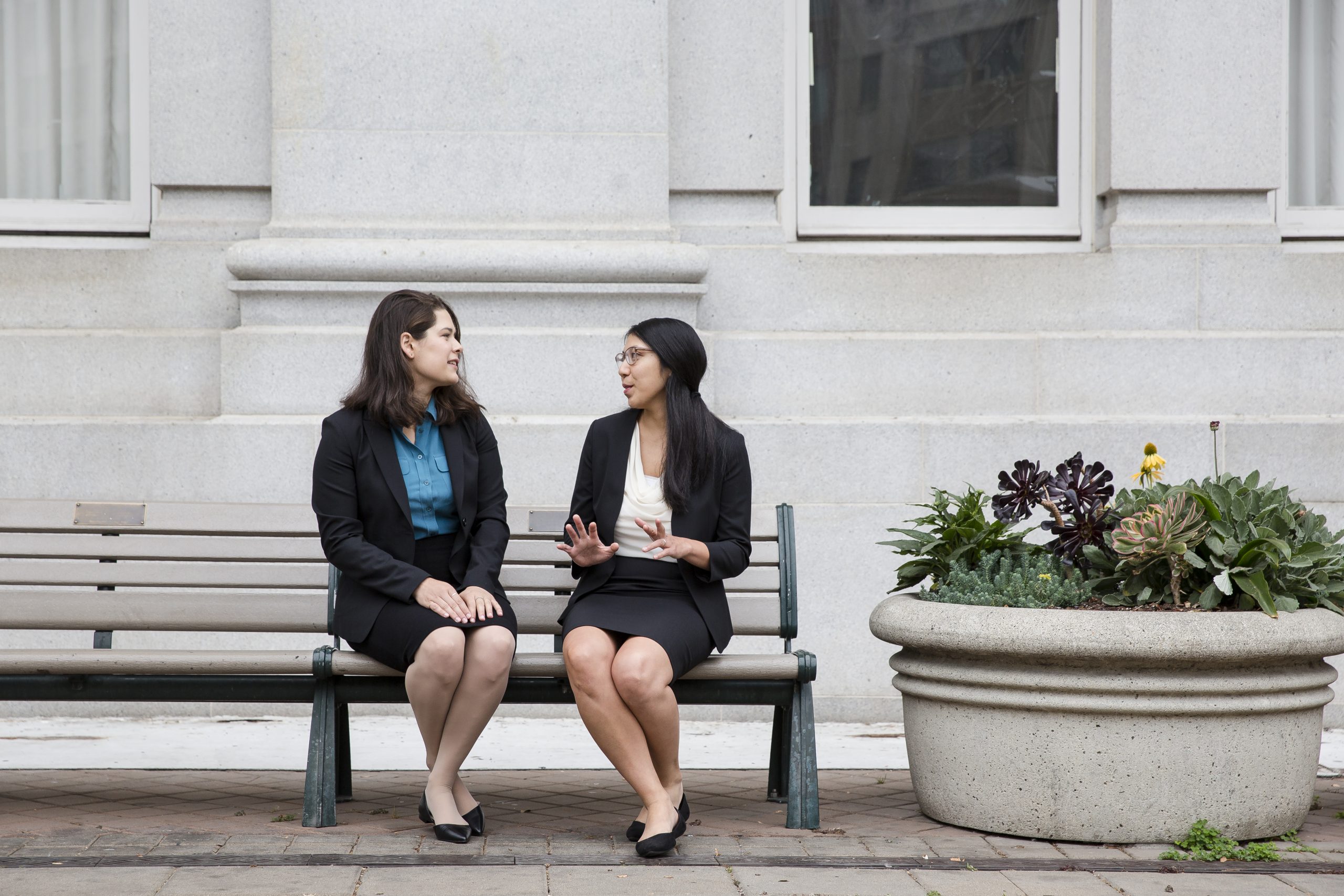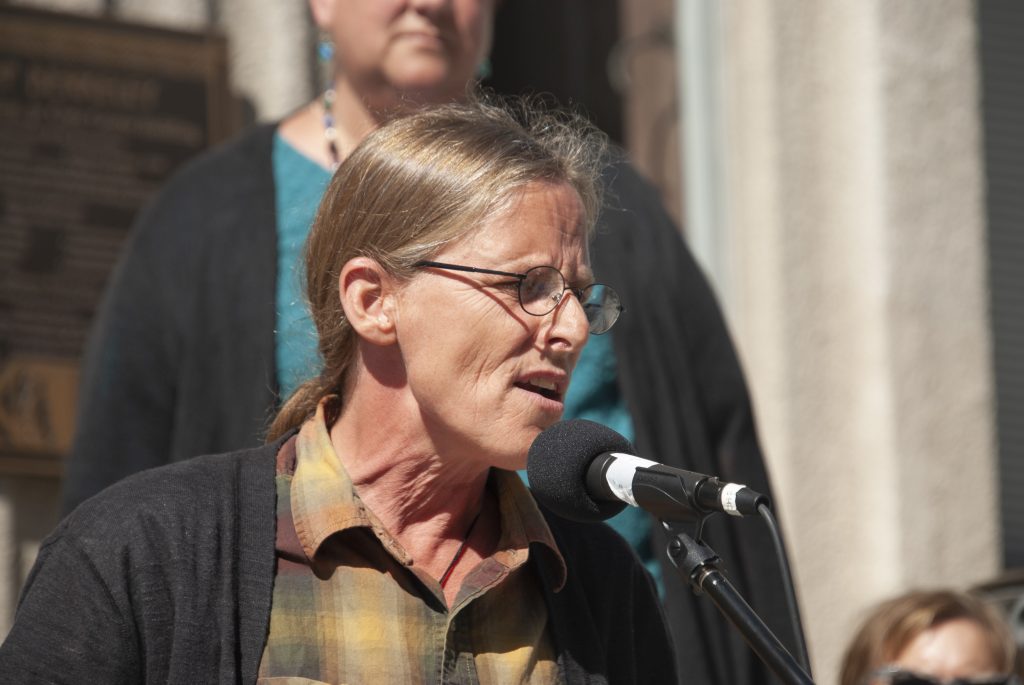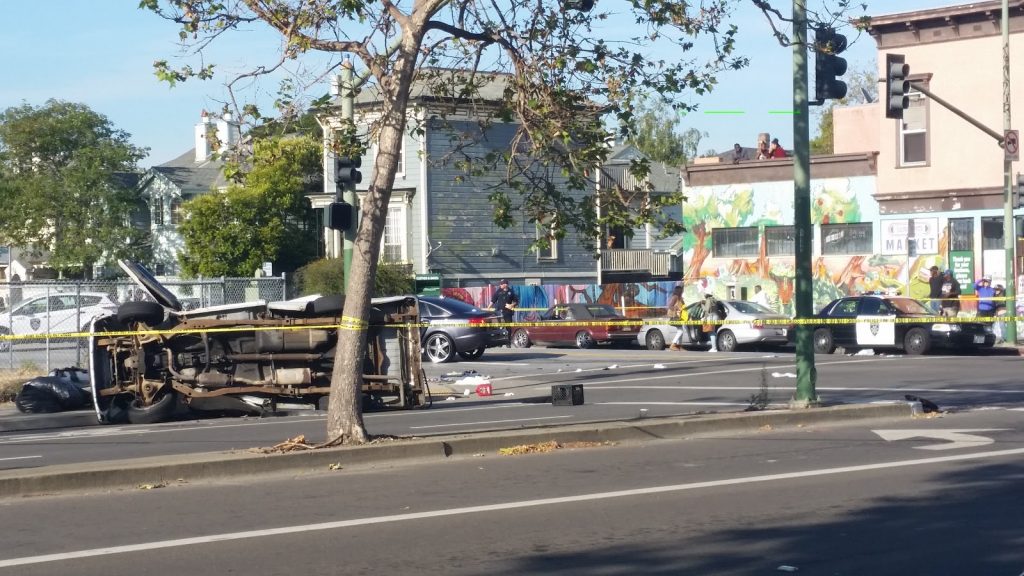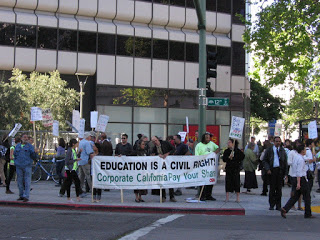In January, the city of Oakland sued a West Oakland warehouse operator, saying that the company was deliberately blowing toxic dust into the neighborhood. The city alleged that the company, Santos Engineering, had cut a hole in the warehouse roof and installed an exhaust fan. As the business broke down construction debris, dust blew out of the roof and coated the neighborhood. Neighbors complained about eye and respiratory problems.
When the suit was filed, City Attorney Barbara Parker said it was a step toward addressing pollution that disproportionately affects poor and minority neighborhoods in West Oakland, where houses are next to industrial buildings and diesel trucks deliver goods to the Port of Oakland. West Oaklanders have higher rates of asthma and cancer compared to other residents in the city, Parker pointed out.
The suit is being handled by the Community Lawyering and Civil Rights Unit, a nascent section of the Oakland City Attorney’s Office that pursues litigation to protect residents — including immigrants and workers — from rights violations.
Parker founded the unit about a year and a half ago. Deputy City Attorney Erin Bernstein, the only attorney working full time in the unit, said it shows Parker’s commitment to doing affirmative litigation “in a more systematic and expanded way.” She was hired to run it in January after a decade in the San Francisco City Attorney’s Office, where about 10 attorneys work full time on such litigation.
“Oakland is a big city with big city problems, and our city attorney’s office is relatively small,” Bernstein said.
But help is here. Two recent law school graduates joined the civil rights unit in September through a fellowship by the Public Rights Project, a new nonprofit founded by Oakland resident Jill Habig. In its first year, the nonprofit has placed two fellows in Oakland and one in Massachusetts.
“Oakland has a long and storied history of civil rights and social justice work, and at the same time Barbara Parker has really made a concerted effort to build a really high-impact affirmative litigation team to really step up their enforcement on wage theft, public health, lead paint, and climate change,” Habig said. “At the same time, they have a really small unit dedicated to this work.”
Initially, Habig had planned to place only two fellows this year — one in Oakland and the other in Massachusetts — with each fellowship lasting two years. But thanks to a last-minute partnership with the nonprofit Justice Catalyst, Habig was able to add a second fellow in Oakland for one year. The fellows were chosen from a wide group of applicants after more than 80 interviews.
“I can’t emphasize enough how this is going to help Oakland expand their consumer protection and constitutional cases,” Bernstein said.
The first fellow hired for Oakland is Amanda Mangaser Savage. Savage is originally from Goleta. Her parents emigrated from the Philippines before she was born, and Savage said she remembers from her childhood waking up early, traveling to Los Angeles with her parents, and waiting in line while they renewed their visas with the U.S. Immigration and Naturalization Service, an agency that was replaced by the creation of the Department of Homeland Security in 2002. When a student in Yale Law School, Savage worked with immigrants and their children, representing those granted asylum and helping them to obtain permanent residency and bring their children to the United States.
“Being able to represent people before these agencies was really powerful,” she said.
After graduating in 2014, Savage worked in the civil rights division of the Massachusetts Attorney General’s Office. She hasn’t lived in the Bay Area before but is enthusiastic about moving to Oakland. “I’m really excited to learn more about the city and how I can help,” she said.
Callie Wilson is the second fellow. She grew up in Washington and attended Yale Law School, where she graduated this year. In law school, she interned with the California Women’s Law Center and worked with the San Francisco City Attorney’s Office on civil rights and gender equity issues.
While in San Francisco, Wilson worked on a lawsuit filed by both San Francisco and Oakland against five major oil producers seeking financial assistance for the impacts of climate change. U.S. District Judge William Alsup dismissed the case in June but the cities are appealing.
Habig has never worked in the Oakland City Attorney’s Office, but she’s been living in Oakland since 2002 (except for a break to attend Yale Law School, where she graduated in 2009). Since then, she has worked in federal courts in California. She was an adviser for then-state Attorney General Kamala Harris and then was deputy campaign manager for her 2016 U.S. Senate run.
After graduating, Habig, too, was a fellow for the San Francisco City Attorney’s Office working on affirmative litigation. That’s where she first met Bernstein, who will be supervising the two Public Rights Project fellows in Oakland.
Habig said that the project is funded by more than 280 individual donors, some of whom contributed as little as $10. The organization has received support from foundations, corporations, and major law firms, including PG&E, nonprofit accelerator Tides, Open Society Foundations, and San Francisco law firm Keker, Van Nest & Peters.
While the Public Rights Project is starting small in Oakland and Massachusetts, Habig hopes it will grow and create a model that will help bolster local civil rights litigation across the country. “We see these sites as being our pilot sites for building a model that will be replicated across the country,” she said.
Habig added that it’s become particularly important for cities and states to take on more civil rights protection as the federal government has turned away from such work. While the U.S. Department of Justice has been an important enforcer of civil rights since its Civil Rights Division was founded in 1957, civil rights have not been a priority under President Donald Trump and Attorney General Jeff Sessions.
“That has only come to a head after the 2016 election when we’ve seen such a huge rollback of the federal government’s historic role in civil rights cases,” Habig said. “A historic effort to undermine equal protection under the law.”



